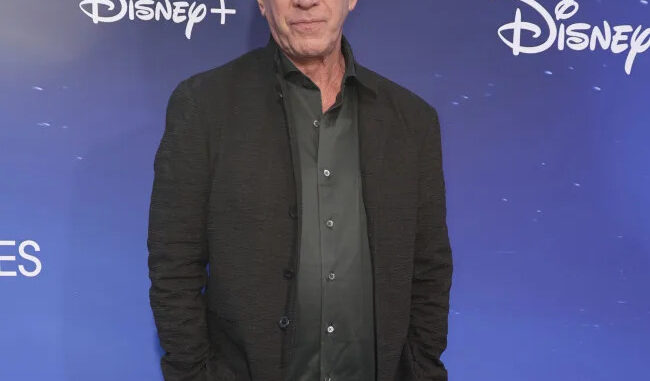
Tim Allen Aims to Say Something Big with New Sitcom
In the ever-shifting sands of popular culture, where comedic sensibilities and societal norms seem to evolve by the minute, certain figures remain steadfast, almost like cultural anchors. Tim Allen is one such figure. With a career spanning decades, from the grunting everyman of "Home Improvement" to the conservative family patriarch of "Last Man Standing," Allen has carved out a distinct niche. Now, with whispers of a new sitcom on the horizon, the murmurs aren't just about his return to television; they carry the weight of expectation that Allen, the master of the comedic Trojan Horse, aims to say something truly big.
Allen’s prior successes were never merely about punchlines and laugh tracks. "Home Improvement," while ostensibly a show about a handyman and his family, was a celebration of a particular brand of masculinity, a slightly bumbling but ultimately well-intentioned father navigating a world that, even then, was beginning to question traditional roles. Its success lay in its relatability for a vast segment of America that recognized the humor and warmth in its depiction of suburban life. Later, "Last Man Standing" doubled down on this subtly subversive approach. Airing during a period of increasing cultural polarization, the show positioned Allen’s character, Mike Baxter, as a voice of traditional values, a common-sense pragmatist in a world he perceived as increasingly detached from reality. The humor often stemmed from his interactions with younger, more progressive family members, creating a dialogue, however caricatured, about contemporary issues. It was comfort food television for an audience that felt increasingly alienated by the prevailing cultural winds, a testament to Allen’s ability to articulate an unspoken perspective.
So, what could this "something big" be in his latest endeavor? Given Allen's established persona and the current cultural climate, it's not a stretch to imagine him tackling themes that resonate with those who feel bewildered or even marginalized by prevailing narratives. Perhaps it will be a comedic exploration of "cancel culture," using family squabbles or workplace mishaps to illustrate the perils of an unforgiving public square. Or it might delve into the complexities of identity politics, presenting scenarios where common sense clashes with ideological purity, all filtered through the lens of a familiar, slightly exasperated patriarch. The "big" thing Allen aims to say could very well be a nuanced, humorous, and fundamentally human plea for understanding, for a return to a common ground where differing opinions can exist without immediate condemnation. It might be a comedic defense of individual liberty, or a gentle lampooning of what some perceive as overzealous social engineering.
The sitcom format, deceptively simple, is a powerful vehicle for such a message. Unlike a polemical essay or a fiery speech, a sitcom disarms its audience with laughter. It invites viewers into a familiar domestic space, where ideas are not debated in abstract terms but embodied in the quirks and conflicts of relatable characters. A cutting observation about societal trends can be delivered with a shrug and a smile, making it far more palatable and memorable than a shouted diatribe. The ongoing, episodic nature allows themes to build slowly, to be explored from multiple angles, letting the audience absorb and reflect without feeling lectured. It’s a velvet glove for a message that might otherwise be perceived as a mailed fist.
However, the challenge for Allen, and for any artist attempting to deliver a "big" message through entertainment, lies in balancing conviction with comedy. The line between illustrative humor and overt preachiness is thin. To truly resonate, the show must first and foremost be funny and engaging, drawing viewers in with character and plot before subtly, or not so subtly, delivering its payload. If successful, Allen’s new sitcom could serve as more than just a diversion; it could become a cultural seismograph, registering the tremors of a society grappling with its values. It could provide a platform for discussions often relegated to the echo chambers of cable news, bringing them into the living rooms of millions through the shared experience of laughter.
In an age craving authenticity and connection, Tim Allen’s return with an explicit aim to "say something big" is more than just another television show. It’s a strategic move, leveraging a well-loved persona and a potent medium to engage with the profound cultural questions of our time. Whether he succeeds in sparking a widespread conversation or merely reinforces existing viewpoints for his loyal audience, his ambition signifies a desire to use the humble sitcom not just for entertainment, but as a genuine, albeit humorous, instrument of cultural commentary and perhaps, even, a call for a return to understanding.